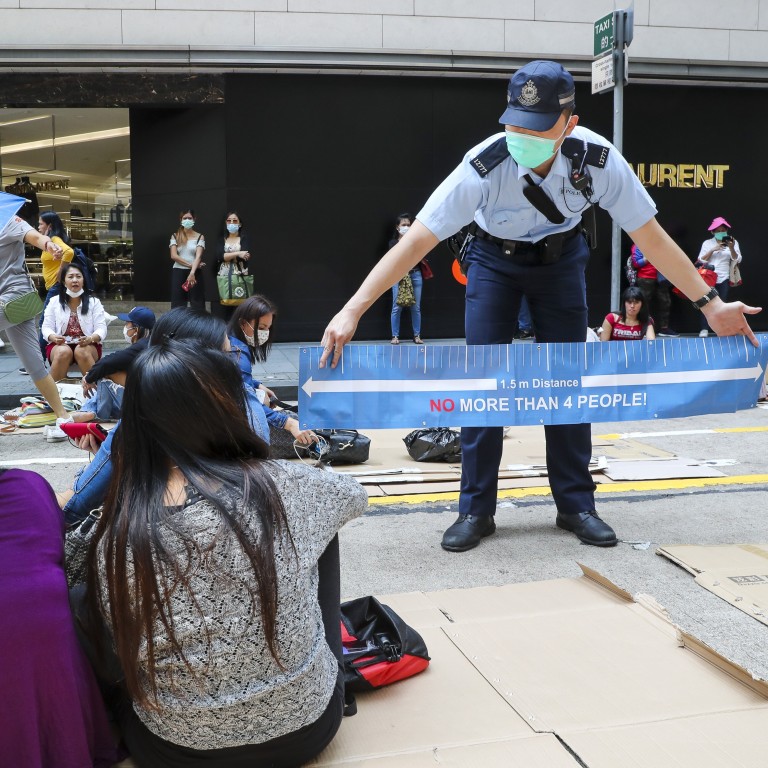
Letters | Domestic workers helped Hong Kong battle coronavirus crisis: their efforts should not go unrewarded
- Longer hours, forgone rest days, and greater exposure to the risk of infection have been all in a day’s work for migrant domestic workers in Hong Kong
- Providing them with ample rest, better work conditions and opportunities to learn a new skill is the least their employers can do in return
Over the past several weeks, we have become used to a new normal: working from home, kids home-schooled, social and active life altered. Self-care for well-being and job security are more important now than ever. However, for some migrant domestic workers, the simplest acts of self-care have become a luxury amid the Covid-19 pandemic.
A survey conducted in March with the help of the group Mission for Migrant Workers revealed that half of the domestic helpers polled had worked more in the past month than at any other time, while 40 per cent said they had not left their residence at all over the period in question. Social-distancing requirements meant many of them were unable to access remittance senders.
Migrant domestic workers are arguably one of society’s most vulnerable groups, particularly so during a pandemic. They have had to take care of the elderly, the children and the sick at home, or families in quarantine. They also ran errands that required them to potentially come into contact with people infected with the virus.
We can do more for the migrant workers in our midst. We need to respect their day off, whether on a Sunday or another day, as they need the time to remit money back home or simply tend to themselves. Further, job assurance, dialogue, and arrangements allowing them to reach their family members whenever they want can help ease their mind and remain more focused at work.
How Covid-19 traps Hong Kong domestic workers in debt
If they are unable to go out on their day off, this might be a great time for them to learn new skills online – whether it’s cooking, language skills or financial literacy classes. One worker, Marivic, a graduate of Enrich’s financial and empowerment education programme, was able to pay off her recruitment debt of HK$20,000, save money, put herself through an associate diploma in IT and plan her business, with help from Enrich. She recently moved back to the Philippines to start a garments business.
Helping domestic workers to build capacity to avoid debt, plan for their future and achieve their goals keeps them focused, generates trust, and ensures a mutually beneficial relationship with employers – all very important as we look beyond this global pandemic.
Pat Dwyer. board member, Enrich HK
Help us understand what you are interested in so that we can improve SCMP and provide a better experience for you. We would like to invite you to take this five-minute survey on how you engage with SCMP and the news.

